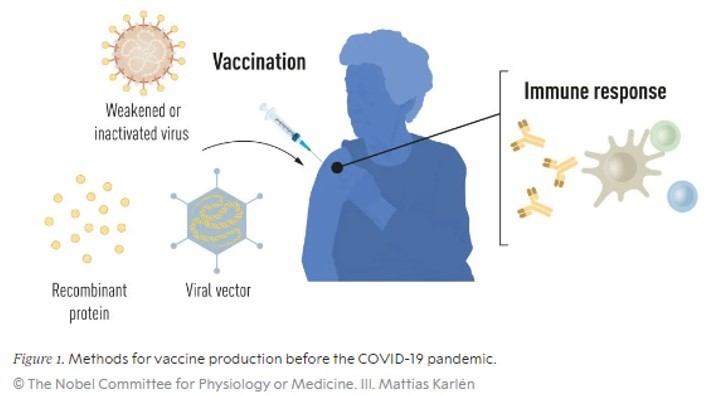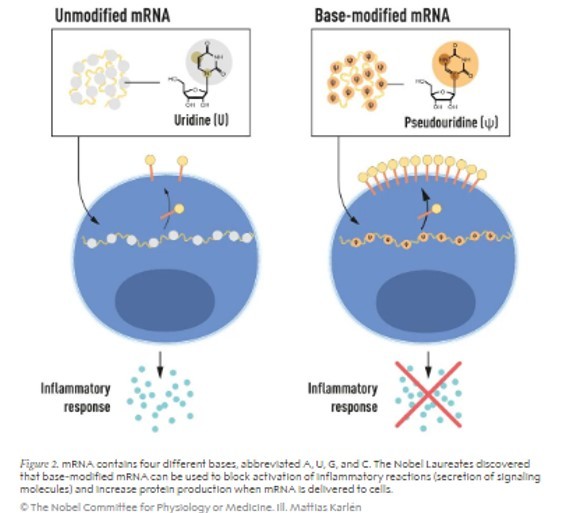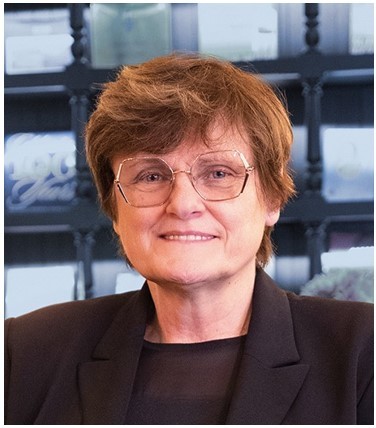Nobel Prize Winners 2023: Pioneering Advances in Medicine
M3 India Newsdesk Oct 31, 2023
The prestigious Nobel Prize 2023 was awarded to the pioneers in mRNA-based therapies and vaccines, transforming medical science. Read to find out about Katalin Karikó and Drew Weissman's work that brought a groundbreaking change in medicine.
Nobel Prizes have a long-standing tradition of honouring individuals who have made remarkable contributions to various fields of science and culture. Among the most prestigious of these awards is the Nobel Prize in Physiology or Medicine, which recognises outstanding discoveries and breakthroughs in the realm of medical science.
In 2023, the Nobel Committee selected two deserving recipients who have made significant contributions to the world of medicine through their innovative research and discoveries.
The prestigious award is bestowed upon two exceptional scientists, Katalin Karikó and Drew Weissman, whose groundbreaking work in the field of RNA therapeutics has revolutionised medicine. Their achievements represent a significant leap forward in the development of new treatments and vaccines.
Vaccination triggers the initiation of an immune response targeted at a specific pathogen, providing the body with an advantage in defending against potential infections in the future.
For a considerable time, vaccines relying on either inactivated or weakened forms of viruses have been accessible, as seen with vaccines for diseases like polio, measles, and yellow fever.
In recognition of his contribution to the development of the yellow fever vaccine, Max Theiler was awarded the Nobel Prize in Physiology or Medicine in 1951.
Recent progress in molecular biology has facilitated the creation of vaccines that focus on individual components of viruses rather than utilising the entire virus. These vaccines typically involve the genetic code of certain viral proteins, usually those found on the surface of the virus. This genetic information is utilised to generate proteins that stimulate the production of antibodies capable of blocking the virus. Notable instances include vaccines against the hepatitis B virus and human papillomavirus.
An alternative approach involves transferring segments of the viral genetic code to a harmless carrier virus, known as a "vector." This technique is employed in vaccines developed to combat the Ebola virus. When vector vaccines are administered, the chosen viral protein is synthesized within our cells, prompting an immune response directed at the specific virus.
The production of vaccines, whether they are whole virus-based, protein-based, or vector-based, necessitates large-scale cell culture. However, this resource-intensive procedure imposes limitations on the rapid production of vaccines in response to outbreaks and pandemics. Consequently, scientists have long sought to develop vaccine technologies that are not dependent on cell culture, though this endeavour has proven to be quite challenging.

Karikó and Weissman made a groundbreaking discovery when they observed that dendritic cells treated in vitro transcribed mRNA as an unfamiliar substance, resulting in their activation and the release of inflammatory signalling molecules.
This prompted them to question why in vitro transcribed mRNA triggered this immune response while mRNA from mammalian cells did not. They speculated that distinct properties must differentiate these mRNA types.
RNA, like DNA, comprises four bases: A, U, G, and C. Karikó and Weissman recognised that RNA from mammalian cells often undergoes chemical modifications, whereas in vitro transcribed mRNA lacks these modifications.
They theorised that the absence of altered bases in vitro transcribed RNA might explain the unwanted inflammatory reaction. To test this hypothesis, they generated various versions of mRNA, each with distinct chemical alterations in their bases, and introduced them to dendritic cells.
The results were remarkable: Including base modifications in the mRNA almost entirely suppressed the inflammatory response. This discovery revolutionised our comprehension of how cells identify and react to different forms of mRNA.
Karikó and Weissman quickly grasped the profound implications of their findings for the use of mRNA as a therapeutic tool. Notably, these pivotal findings were published in 2005, a full fifteen years prior to the emergence of the COVID-19 pandemic.

Katalin Karikó: The pioneer of mRNA therapies

Katalin Karikó, born in Hungary, has dedicated her career to the study of mRNA (messenger RNA). Her journey began in the 1970s when she made the United States her home. Over the years, Karikó's relentless commitment to mRNA research led to groundbreaking discoveries.
Contribution
Karikó's primary contribution lies in her relentless pursuit of mRNA-based therapies, focusing on the development of mRNA vaccines and treatments for various diseases, including cancer and infectious diseases. Her work laid the foundation for the development of COVID-19 mRNA vaccines, which have had a transformative impact on global healthcare.
Impact
Karikó's work has led to the development of mRNA vaccines for COVID-19, allowing for a rapid response to the pandemic and offering a new approach to vaccine technology. Her research has also opened doors for mRNA-based therapies for other diseases, promising more effective treatments and fewer side effects.
Drew Weissman: The advancements in mRNA vaccines

Drew Weissman, a professor of Medicine at the Perelman School of Medicine at the University of Pennsylvania, has worked closely with Katalin Karikó. Together, they have made significant strides in the application of mRNA in vaccine development.
Contribution
Weissman's work focuses on the modification of mRNA to reduce its inflammatory potential while preserving its ability to stimulate a strong immune response. This innovation was crucial in the development of safe and effective mRNA vaccines, such as the Pfizer-BioNTech and Moderna COVID-19 vaccines.
Impact
Weissman's contributions to mRNA vaccine technology have played a pivotal role in the fight against COVID-19. His expertise in optimising the mRNA sequence has made these vaccines not only highly effective but also safe. This achievement has paved the way for the development of mRNA vaccines for various other diseases, potentially revolutionising the field of vaccinology.
COVID-19 vaccines
The potential of mRNA vaccines became evident when, in 2010, numerous companies initiated work on their development. They explored the creation of vaccines for conditions like the Zika virus and MERS-CoV, which is closely related to SARS-CoV-2. Then, with the onset of the COVID-19 pandemic, two mRNA vaccines, incorporating base modifications and encoding the SARS-CoV-2 surface protein, were swiftly developed. Remarkably, these vaccines demonstrated efficacy rates of approximately 95%, and both received approval as early as December 2020.
The remarkable adaptability and rapid development capabilities of mRNA vaccines have opened the door to their application in combatting various infectious diseases. Furthermore, this technology holds the potential for delivering therapeutic proteins and addressing specific cancer types in the future.
Future possibilities
- The mRNA platform offers immense potential for addressing a wide range of diseases, from cancer to rare genetic disorders.
- This technology allows for faster vaccine development and more targeted therapies, potentially transforming the way we treat and prevent diseases.
- As we honour Katalin Karikó and Drew Weissman with this prestigious award, we are reminded of the remarkable progress that science can achieve when dedicated individuals push the boundaries of knowledge.
- Their work will continue to inspire future generations of scientists and pave the way for innovative solutions to some of the most challenging health issues of our time.
Disclaimer- The views and opinions expressed in this article are those of the author and do not necessarily reflect the official policy or position of M3 India.
-
Exclusive Write-ups & Webinars by KOLs
-
Daily Quiz by specialty
-
Paid Market Research Surveys
-
Case discussions, News & Journals' summaries